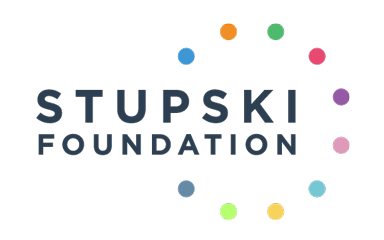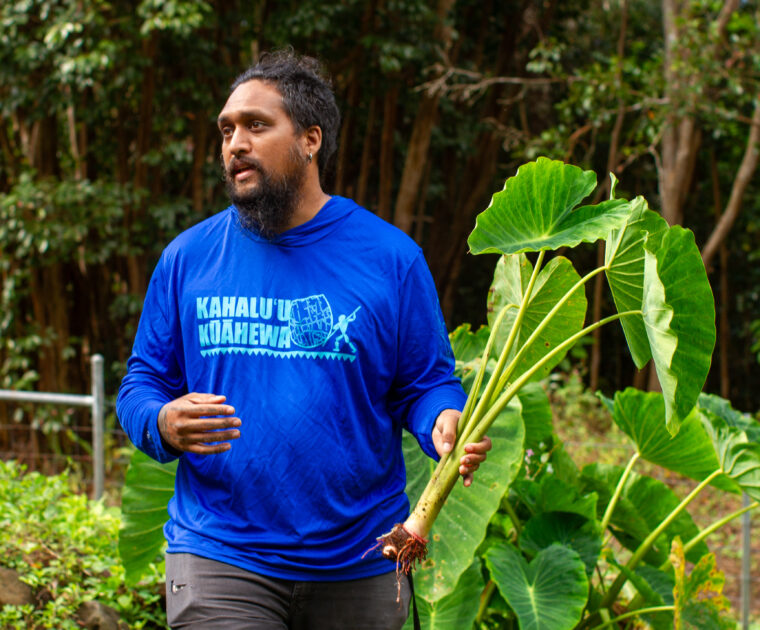
Food Justice
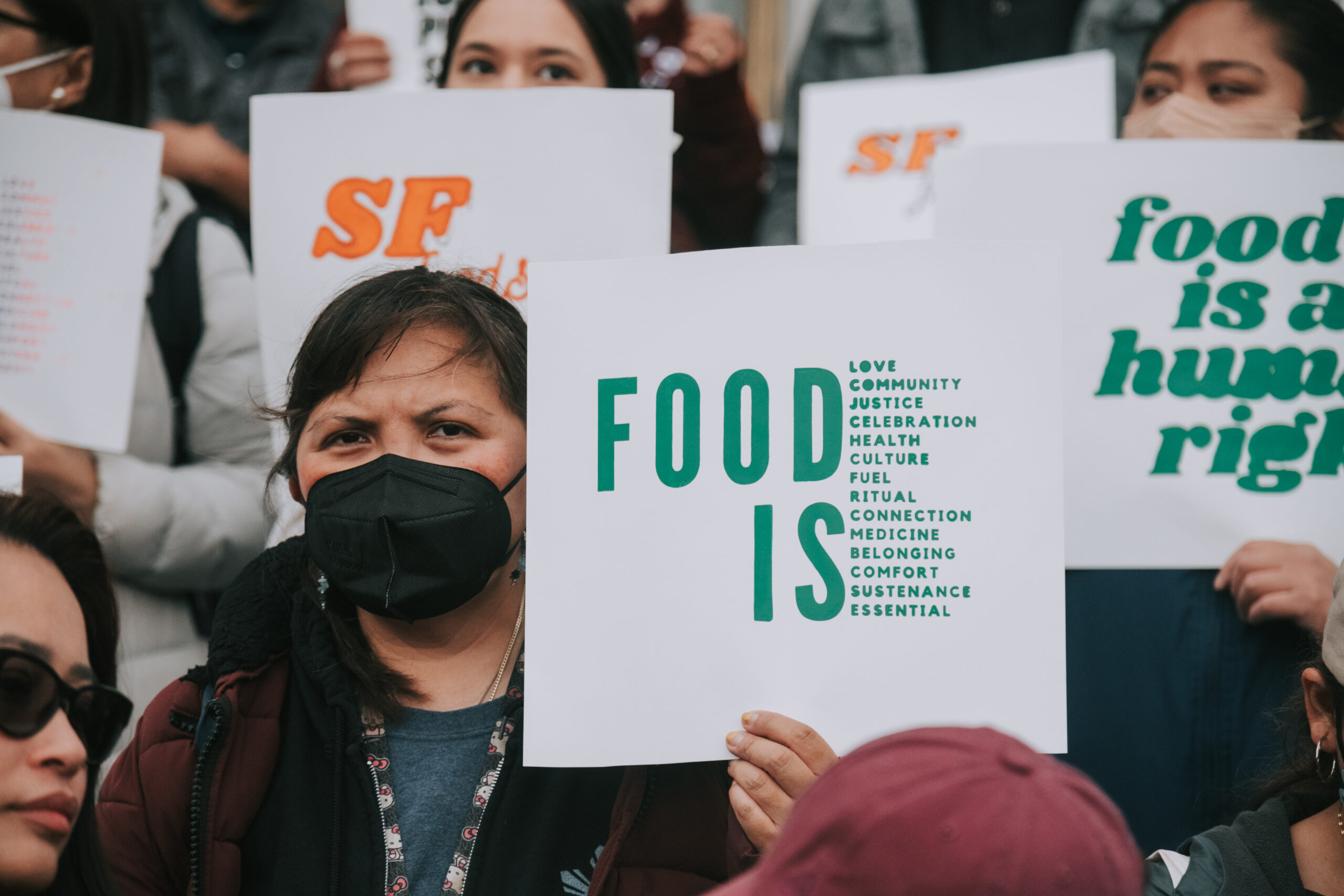
All people have the right to healthy, just, and culturally relevant food. Yet, our current food systems do not afford that right to all people in our communities. This reality is a symptom of deep-rooted systemic issues, including structural racism and economic and environmental injustices that disproportionately impact Black, Indigenous, and other communities of color; people with low income; immigrants; and refugees. These inequities are mirrored in our agricultural systems, from extractive plantation systems in Hawai‘i to the legacies of land theft and industrial agriculture in California. Throughout the COVID-19 pandemic and climate change-fueled disasters, we collectively witnessed the fragility of our food systems, with widespread impacts that included local food availability and safety for food and farmworkers.
Another way is possible.
When we listen to local leaders, we are reminded that solutions already exist all around us. Our work through the end of Stupski’s spend down in 2029 prioritizes partners working at the intersections of food justice and food sovereignty.
Why food justice?
Food is an expression of culture, place, and belonging. Healthy, accessible, and equitably grown food is the foundation of thriving communities. Learn more about why we apply a food justice lens to our work returning resources to Indigenous and community-led groups that are advancing a powerful vision for a more vibrant, equitable, and resilient food system.
What does Stupski Foundation fund?
Our partners are working to create a sustainable future for generations to come. We fund organizations and coalitions in Hawai‘i, California, and nationally that work to feed their communities and steward the land. We prioritize organizations and coalitions that are grounded in place-based knowledge; shift power; and recenter the wisdom of Black, Indigenous, and people of color communities and leaders.
Our goal in the long term is that our ‘āina is healthy, our food system is healthy, and our people are healthy. Our food connects us to our grandparents, to our spirit, to our culture, to our stories, to our environment. So if we’re interested in our children growing up in a healthy food system, we have to invest in it.
Kaʻiulani Odom, executive director
Hawai‘i Good Food Alliance
Supporting Community Solutions
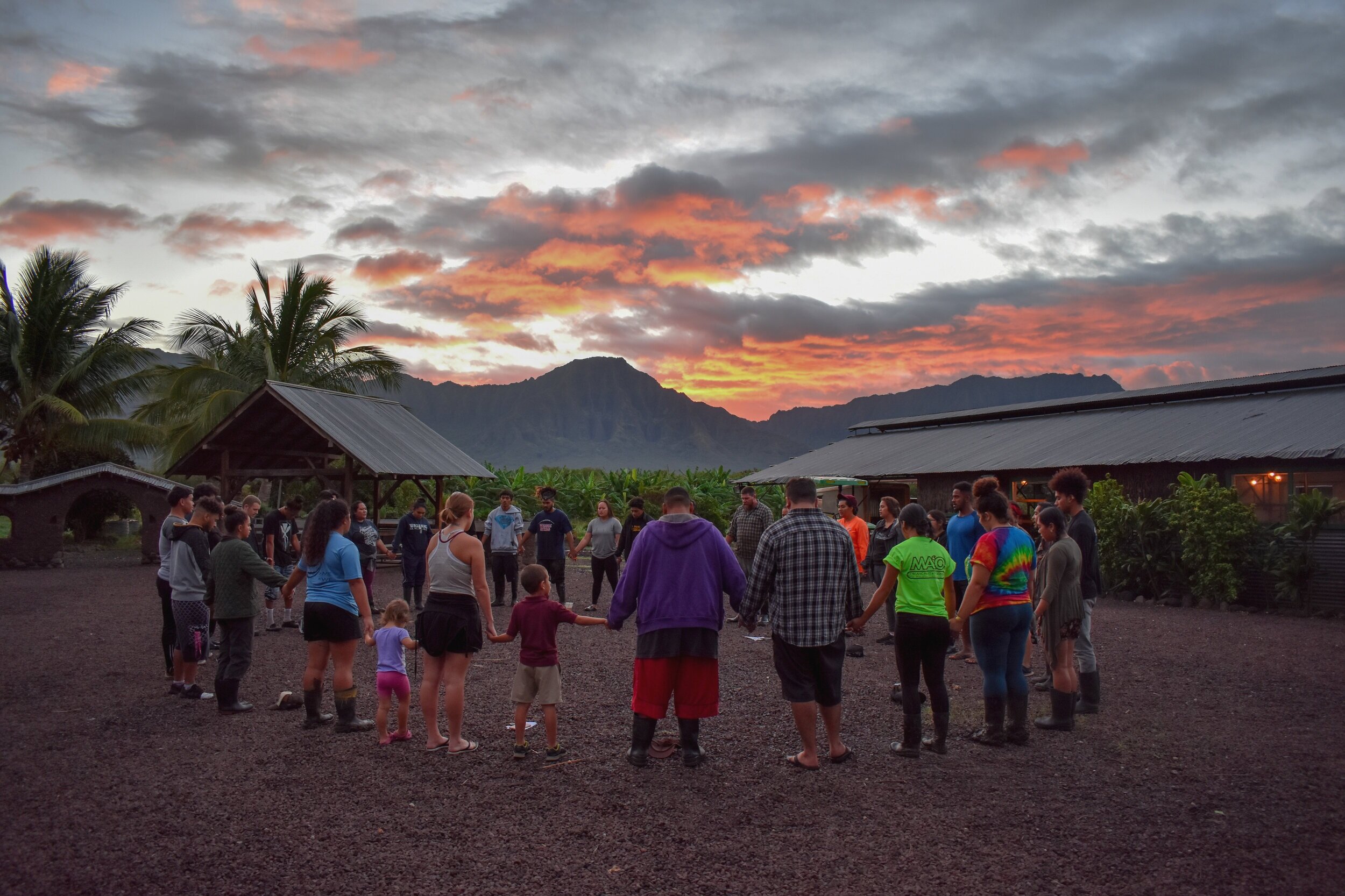
The healing of people and our ecosystems are interconnected. From individual neighborhoods to entire regions, our partners are working to cultivate local food economies; ensure dignified access to healthy food; and recover climate-resilient, traditional food practices. Because we cannot have food without land, we support partnerships that return land to community control. In California, this includes initiatives to strengthen access to land for Black, Indigenous, Latino, Asian America, Native Hawaiian, Pacific Islander, and other farmers of color and to rematriate, or return, land to indigenous stewards. In Hawai‘i, this includes support for ʻāina stewards protecting wahi kūpuna ancestral sites, along with initiatives that restore cultural connectivity and agricultural abundance.
The voices of community should guide how food is grown, prepared, and shared. The food justice movement is rooted in a deep history of grassroots organizing. Racial justice, environmental, and labor rights organizers first championed many of the bright spots in our current food system, like labor rights for farmworkers and free school meals. This work continues across generations, as community-based organizations and coalitions engage with policy, advocacy, and organizing as tools for long-term transformation. Our partner’s work includes training and amplifying the voices of emerging food justice champions, advocating for the protection and expansion of critical safety nets like financial food assistance and nutrition benefits, and shifting local and national policy to support agricultural workers’ rights and honor their work.
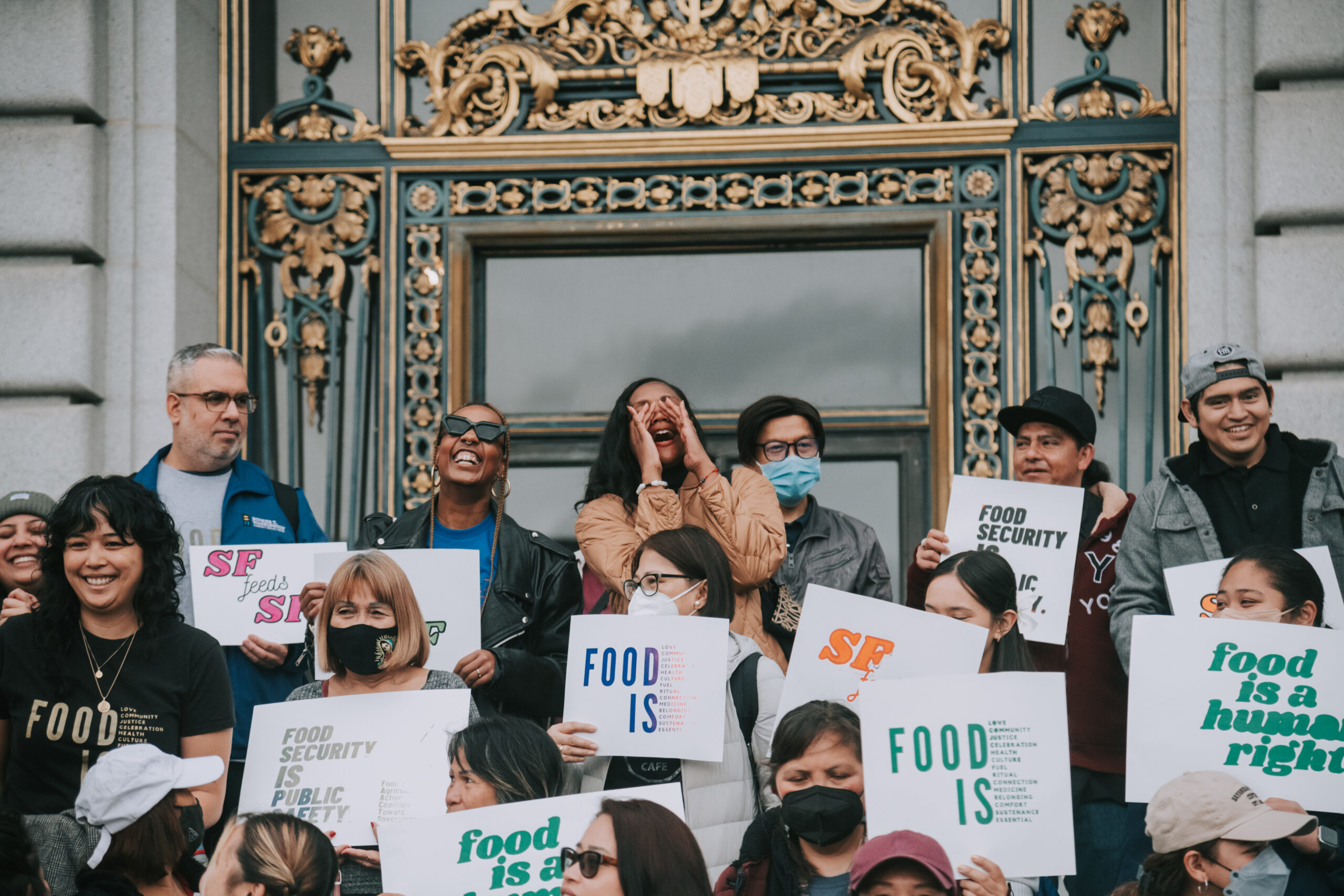
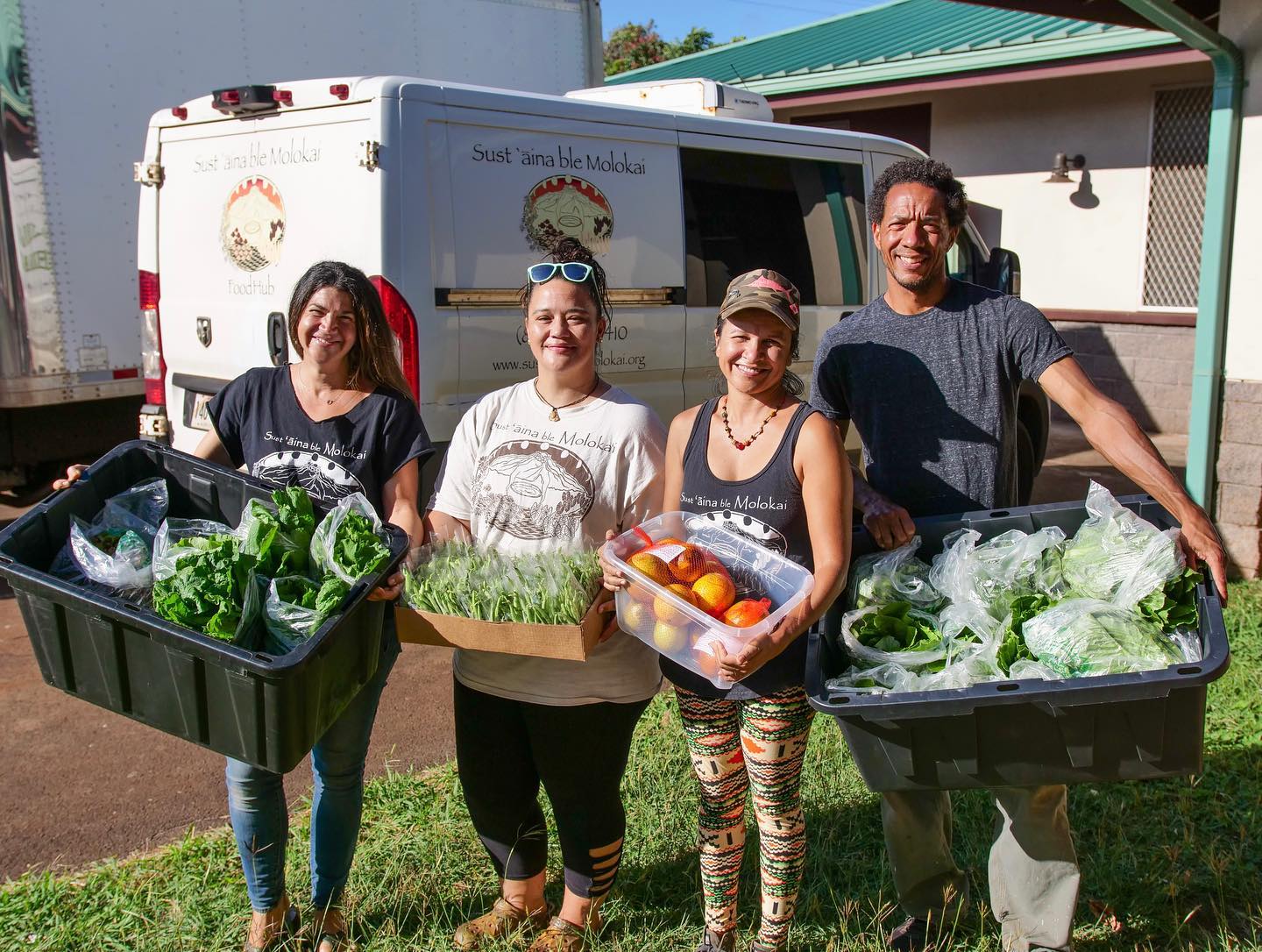
As communities continue to address the impacts of climate disasters in Hawai‘i and California, the importance of disaster preparation and future resilience is clear. We know that we can’t predict the future, but it is evident that more climate and other human-made disasters will occur. We support communities sustaining intergenerational land-based knowledge and bolstering cultural and ecological resilience. Our partners are working to uplift climate-adaptive agricultural practices, ecological restoration for fire resiliency, and community-led emergency preparedness efforts.
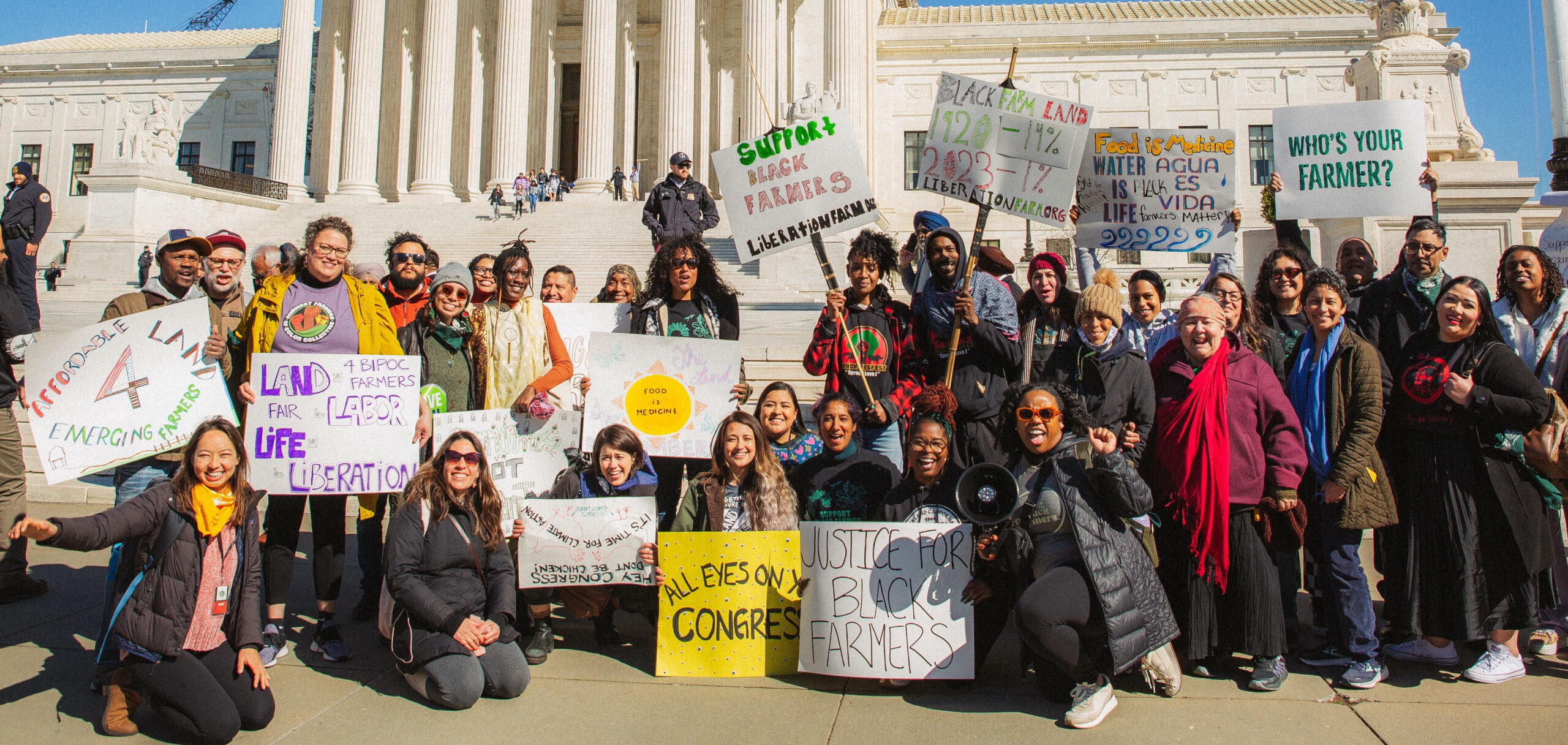
When we listen to communities that have been most burdened by harmful agricultural practices and nurture BIPOC [Black, Indigenous, and people of color] farmers, ranchers, and fishers who use traditional agricultural techniques to grow an abundance of food while protecting our land, air, and water, we can design local and regional solutions that reduce harm and cultivate agricultural systems that nurture and heal our planet.
HEAL Food Alliance
Join Us
Food systems transformation is essential for all communities to thrive.
We believe philanthropy has a responsibility to move funding towards this healing work. We welcome opportunities to connect with funders interested in sharing opportunities and lessons learned.
Check out our latest food justice news.
Resources
Understanding the complexities of our food system requires ongoing learning. Check out this collection of resources from our grantee partners, curated by Clyds Manzano, a Stupski Food Justice Intern Alum, that continues to inform our learning and grantmaking.
